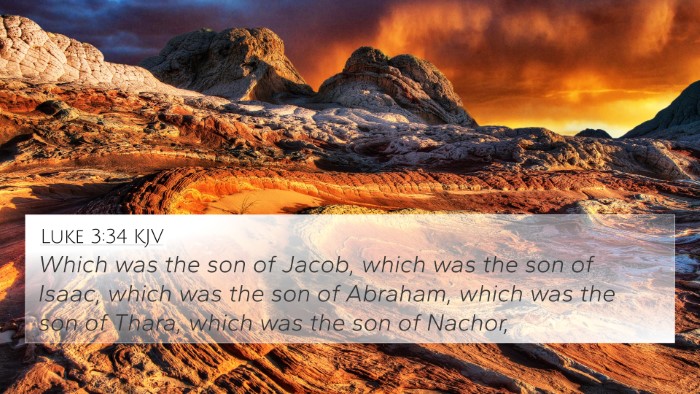Understanding 1 Chronicles 1:26
Verse Text: "The sons of Abraham: Isaac and Ishmael."
This verse succinctly lists the direct descendants of Abraham, focusing on Isaac and Ishmael. The genealogical nature of this passage serves several purposes in the biblical narrative.
Context of 1 Chronicles 1:26
The genealogies in 1 Chronicles are essential for establishing Israel's history and God's covenantal promises. In this particular verse, the mention of Isaac and Ishmael highlights the significance of Abraham as the father of nations. This enumeration of his sons signifies both the continuation of God's covenant through Isaac and the broader implications of his lineage through Ishmael.
Commentary Insights
Matthew Henry's Commentary
According to Matthew Henry, this verse serves as a reminder of the covenant God made with Abraham, emphasizing Isaac's role as the heir to God's promises. Henry points out that while Ishmael was also a son of Abraham, it is through Isaac that the promises of God to Abraham are fulfilled. The contrast between Isaac and Ishmael underscores the theme of divine election and the continuation of God's redemptive plan.
Albert Barnes' Notes
Albert Barnes elaborates on the familial relationships, noting that Isaac represents the chosen line that culminates in Israel. Ishmael, though a significant figure, is seen as the father of the Arab nations and represents a separate lineage. Barnes stresses the importance of Isaac in the context of the Abrahamic covenant, where the lineage through him is crucial for understanding the history of Israel and the Messiah's eventual coming.
Adam Clarke's Commentary
Adam Clarke emphasizes the historical context of Ishmael's and Isaac's descendants. Clarke points out that Ishmael, despite being cast out, had a significant role as the progenitor of many nations. This can lead to discussions on the themes of inclusion and exclusion, demonstrating how God's sovereignty shapes human history and relationships.
Thematic Connections
The verse links to broader themes in the Bible concerning lineage, inheritance, and God's chosen people. Here are some key thematic Bible verse connections:
- Galatians 4:22-23: Paul discusses the two sons of Abraham, further explicating the significance of their respective lineages.
- Romans 9:6-8: Insight into the children of promise, affirming that not all are children of God based on biological lineage.
- Genesis 21:12: God’s assurance to Abraham about Isaac being the heir and the importance of his lineage.
- Hebrews 11:17: Acknowledgment of Abraham's faith in Isaac's future, signifying the importance of Isaac in God's plan.
- Matthew 1:2: Genealogy of Jesus, linking to Abraham as the foundational figure in the lineage of Christ.
- Genesis 16:11-12: The prophecy regarding Ishmael, reflecting his future as a great nation.
- 2 Corinthians 1:20: The faithfulness of God in fulfilling the promises made to Abraham through his appointed lineage.
Importance of Cross-Referencing
Cross-referencing Biblical texts, such as that in 1 Chronicles 1:26, allows for a deeper understanding of the Scripture. By identifying connections between Bible verses and conducting a comparative Bible verse analysis, readers can see how themes are woven throughout the text.
Tools for Cross-Referencing
To enhance understanding, consider using these tools:
- Bible Concordance: A helpful tool for finding specific words and phrases.
- Bible Cross-Reference Guide: Provides quick access to related verses.
- Cross-reference Bible Study: An effective method for exploring themes through different scripture.
- Comprehensive Bible Cross-Reference Materials: Ideal for in-depth study and sermon preparation.
Conclusion
In summary, 1 Chronicles 1:26 not only identifies Abraham's sons but also prompts reflection on God's covenant through Isaac and the implications of Ishmael's lineage. This verse serves as a gateway to understanding the complexities of divine promise and the rich tapestry of biblical history. By employing tools for Bible cross-referencing and understanding thematic connections, believers can deepen their study of Scripture and its meanings.



